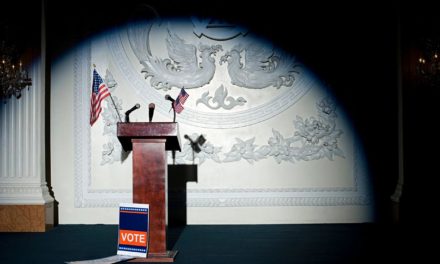Polling is a noun. Politicians mostly use it to favor one candidate over another or dissuade voters away from the truth all the while making false seem real.
Collins Dictionary says it is the act of voting in an election. Dictionary.com says it’s the conducting of a public opinion poll. The Cambridge Dictionary says it’s the present participle of poll. And Madame Merrian-Webster lists scores of synonyms to add to the confusion: surveying, canvassing, soliciting, feeling out, sounding out, interrogating, circularizing, paring, snipping, nipping, manicuring, pinching, and curtailing.
Political parties use political polls to bury bad news in graphic charts and data points, while hiding weak numbers from a public that could not care less about numbers, unless it’s the cost of bread, gas, diapers, or sandbags. The real test of a poll is that quaint thing called trustworthiness. What makes voters gag is the insult after injury known as credibility.
Credible polls report their margin of error, which shows how much the result of a poll could vary from reality. Other factors to consider are the poll’s funders, the pollster’s sampling methods, and the specific questions participants were asked. Even if a poll relies on a good national sample, it is difficult to generate precise results about smaller subareas or subgroups. Polling firms who participate in industry transparency initiatives are more accurate than those that do not.[1]
Ethical reporting, especially about political issues, should be correct and fair. We should take responsibility for insuring accuracy before posting anything. We should take care not to misrepresent or oversimplify. We must be cautious about polling because it is not an exact science and can be manipulated to show favoritism or partisanship. Much can be wrong. Polling cannot predict the future of a political venture. Political reporters writing polling results should understand they have a special duty to serve as watchdogs over public affairs when predicting election results.[2]
Arguably the best evidence of the lack of prediction in politics is the 2020 presidential election. Most preelection polls in 2020 overstated Joe Biden’s lead over Donald Trump in the national vote for president, and in some states incorrectly indicated that Biden would likely win or that the race would be close when it was not. These problems led commentators to argue that “polling is irrevocably broken,” that pollsters should be ignored, or that “the polling industry is a wreck, and should be blown up.”[3]
ABC News reported in 2024 that polling wasn’t broken, but pollsters still faced Trump-era challenges. They reported on the difficulty of “weighting” in polling because no one knows or can predict the “know unknown of who will vote.”[4]
Some, perhaps many, rely on FiveThirtyEight.com polling vis-à-vis this year’s presidential race. Their latest update, August 7, 2024, at 3:09 p.m., labeled “Who’s Ahead in National Presidential Polls” posed three questions. (1) Do voters want republicans or democrats in congress? (2) Do Americans have a favorable opinion of Kamala Harris? (3) Do Americans have a favorable opinion of Donald Trump?
In all three cases, the answers depended on who they selected to answer their questions. It does not take a genius level statistician to predict that most members of a political party would favor their presumptive candidates. Most democrats would favor a democrat in congress. The same is true for republicans. The three questions were posed to be answered by voters and Americans. The answers indicated a statistical tie to question number one, a yes answer to question two and a no answer to question number three. In all three questions the answer was predictable if they were posed to political enthusiasts, rather than ordinary non-political people. But non-political people don’t answer calls from pollsters.
The University of California Berkely’s alumni association said when the 2020 election polls came in, they were only sixty percent correct, which is zero percent surprising.[5]
Scientific American answered the right question correctly: “Election polls are accurate when they reveal voter intentions on the day they were taken. They don’t predict the future.”[6]
One day before this blog will be published, NPR’s poll said, “Harris jumps to a small national lead over Trump.”[7] Their prediction is based on an NPR/PBS/Marist poll. That prediction is four points better than just after Harris got into the race two weeks ago. It gives Harris a fifty-one percent chance against Trump’s forty-eight percent chance.
The key ethical word in the last sentence is the word “chance.” A chance is an unpredictable event or happening without a clear cause or intention. It’s luck at best and an opportunity at least.
Polling is always a chance, never “accurate” in the normal sense of the word and always “speculative” in the extreme. I hope this sentence is true: Voters don’t vote to affirm polls; they vote to elect their preferred candidate. That’s the only ethical imperative for pollsters. People don’t vote for who’s on first, they vote for the home run hitter that’s about to cross home plate.
[1] https://scienceexchange.caltech.edu/topics/voting-elections/political-polls-science#:~:text=Pollsters%20typically%20draw%20a%20random,are%20also%20being%20conducted%20online).
[2] https://www.spj.org/ethicscode.asp
[3] https://www.pewresearch.org/methods/2021/03/02/what-2020s-election-poll-errors-tell-us-about-the-accuracy-of-issue-polling/#:~:text=Most%20preelection%20polls%20in%202020,close%20when%20it%20was%20not.
[4] https://abcnews.go.com/538/polling-broken-pollsters-face-trump-era-challenges/story?id=110677969
[5] https://alumni.berkeley.edu/california-magazine/online/election-polls-are-only-60-percent-accurate-which-0-percent/#
[6] https://www.scientificamerican.com/article/what-can-election-2024-polls-really-tell-us/
[7] https://www.npr.org/2024/08/06/g-s1-15701/election-poll-harris-trump

I am an author and a part-time lawyer with a focus on ethics and professional discipline. I teach creative writing and ethics to law students at Arizona State University. Read my bio.
If you have an important story you want told, you can commission me to write it for you. Learn how.






 I am an author and a part-time lawyer with a focus on ethics and professional discipline. I teach creative writing and ethics to law students at Arizona State University.
I am an author and a part-time lawyer with a focus on ethics and professional discipline. I teach creative writing and ethics to law students at Arizona State University.  My latest novel is Hide & Be.
My latest novel is Hide & Be.  If you have an important story you want told, you can commission me to write it for you.
If you have an important story you want told, you can commission me to write it for you.